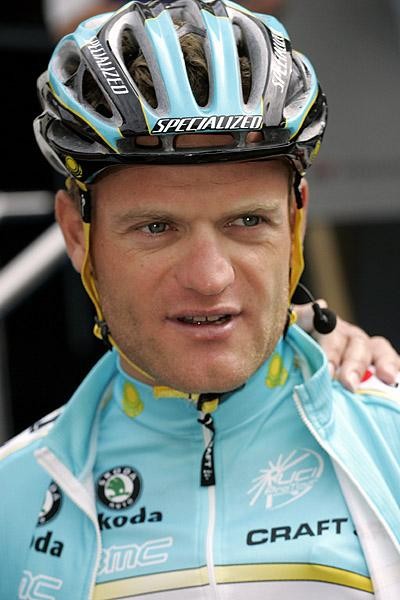Kessler suspended by Astana
Astana's Matthias Kessler has returned an adverse analytical finding for testosterone, according to...

Astana's Matthias Kessler has returned an adverse analytical finding for testosterone, according to a team press release issued today. The sample was taken in a surprise doping control on April 24 in Charleroi, Belgium prior to La Flèche Wallonne. Kessler finished fourth in the race.
The 28 year-old has been suspended by his Astana team while he awaits the results of the B-sample analysis. "This result is for me inexplicable and I will immediately require a second assessment," said Kessler according to his team.
The Astana team was suspected in the press last week of being the 'men in black' - riders who were targeted by the UCI for training incognito in unusual locations, something the UCI felt was an attempt to avoid doping controls.
UCI antidoping program director Anne Gripper told Belga at the time that, "Several abnormal results have already come in" and indicated that there may be announcements before the start of the Tour de France. Gripper declined to comment today on the Kessler case, saying that she would not do so until a B sample result was established.
The Astana team defended itself against suspicions about their training methods, saying that the riders have a right to train in an anonymous way so as to not be disturbed by cyclotourists. "The Astana Cycling Team shows that it is perfectly favourable to the surprise controls which can be carried out by the team itself, the UCI, national Federations or WADA. The riders from Astana do not avoid this in any sense," the team stated in response to the UCI allegations.
While the UCI would not confirm that Kessler had been one of the 'men in black', Gripper did state last week that "We have picked out six or seven riders who are considered high-risk cases because of their suspect behaviour and subsequent good performances in the Tour de France." Kessler won stage three of the 2006 Tour while riding for the T-Mobile squad, but finished the race in 54th place, nearly two hours behind Floyd Landis in the general classification.
As the public learned from the Landis testosterone case, an adverse finding on an A-sample isn't the final step for a positive antidoping control. The UCI would not comment on whether Kessler's sample had been analysed for synthetic testosterone, and if it has not, there is a chance that an elevated testosterone:epitestosterone ratio could be due to natural causes. Neither the UCI nor the Astana team has announced the date of the B-sample analysis.
Get The Leadout Newsletter
The latest race content, interviews, features, reviews and expert buying guides, direct to your inbox!